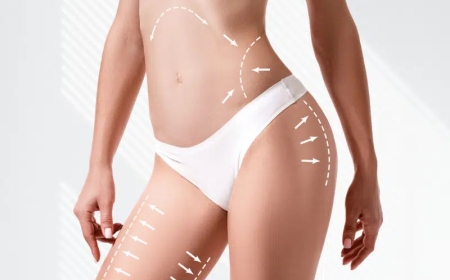Are Women More Prone to Oral Health Concerns? Here's Why
Explore how hormones impact women’s oral health across life stages and get expert advice from a dentist and hygienist in Ryde for lasting care.

Oral health is a vital aspect of overall wellbeing, but did you know that biological sex can play a significant role in determining susceptibility to certain dental issues? While both men and women can experience dental concerns, studies and clinical observations consistently show that women may be more prone to specific oral health conditions throughout their lives. The underlying reason? Hormones. Female hormone levels fluctuate considerably across different life stages, impacting everything from gum sensitivity to bone density. This blog explores how these hormonal shifts influence oral health, identifies the most common dental issues affecting women, and outlines proactive steps women can take to maintain optimal oral hygiene at every stage of life.
Hormonal Changes and Their Impact on Oral Health
Women undergo several major hormonal changes throughout their lives, and each stage can uniquely affect their oral health. These fluctuations can influence blood flow to the gums, change the bodys inflammatory response, and alter saliva production.
Key Hormonal Stages and Their Oral Effects
|
Life Stage |
Hormonal Influence |
Oral Health Impact |
|
Puberty |
Surge in oestrogen and progesterone |
Swollen gums, bleeding during brushing |
|
Menstruation |
Monthly hormonal changes |
Temporary gum swelling, mouth sores |
|
Pregnancy |
Elevated hormone levels, increased blood circulation |
Pregnancy gingivitis, heightened sensitivity |
|
Menopause |
Decline in oestrogen |
Dry mouth, burning mouth syndrome, bone loss |
During pregnancy, for instance, many women experience a condition called pregnancy gingivitis, characterised by inflamed, bleeding gums due to heightened sensitivity to plaque. Menopause, on the other hand, often results in dry mouth, which reduces the protective effects of saliva and increases the risk of decay.For anyone going through these transitions, seeking guidance from aHygienist in Rydecan be a proactive step in managing symptoms and preventing further complications.

Common Oral Health Issues More Prevalent in Women
Due to these hormonal shifts, women are often more likely to experience the following dental concerns:
1. Gum Disease and Gingivitis
Oestrogen and progesterone can increase the gums sensitivity to plaque, often resulting in irritation, swelling, and tenderness. Without proper care, this can develop into periodontal disease, which may contribute to tooth loss if untreated.
2. Dry Mouth (Xerostomia)
Dry mouth is particularly common during menopause, as reduced saliva flow increases the risk of tooth decay and bad breath. Medications such as antihistamines or antidepressants can also worsen the condition.
3. Temporomandibular Joint (TMJ) Disorders
Women report higher incidences of jaw pain, clicking, and discomfort related to the TMJ. This may be linked to stress, hormonal factors, or even bruxism (teeth grinding).
4. Bone Loss and Osteoporosis
Bone density loss can affect the jawbone, potentially leading to tooth instability. In severe cases, it may compromise the success of dental implants or lead to denture discomfort.
5. Eating Disorder-Related Erosion
Eating disorders, which disproportionately affect women, can cause significant erosion of tooth enamel, especially from conditions like bulimia, where frequent vomiting introduces stomach acid to the mouth.
Lifestyle and Behavioural Influences
While hormonal fluctuations play a central role, lifestyle factors can also influence the likelihood of developing dental problems. Interestingly, women are statistically more likely to visit the dentist than men, which might result in a higher rate of diagnosed issues.
Some other contributing behaviours include:
- Dietary habits:Women may favour certain diets or supplements that affect oral health. For instance, frequent consumption of acidic or sugary foods can increase the risk of decay.
- Caregiving responsibilities:Many women, particularly mothers, prioritise their families healthcare over their own, potentially delaying dental check-ups.
- Oral contraceptive use:Long-term use of birth control pills may lead to increased gum inflammation due to hormonal effects.
Regular visits to a Dentist in Ryde can ensure these factors are addressed early, with personalised treatment plans tailored to each stage of life.
How Women Can Protect Their Oral Health
The good news is that with the right habits and professional support, women can effectively manage and prevent most oral health concerns. Here are some practical steps:
Daily Care Tips
- Brush twice daily with fluoride toothpaste
- Floss or use interdental brushes to remove plaque between teeth
- Use an alcohol-free mouthwash to help with gum health and dry mouth
- Keep yourself hydrated by drinking ample water to support healthy saliva production.
Professional Care
- Attend dental check-ups every 6 months or as advised
- Book regular hygiene sessions with a Hygienist in Ryde to prevent gum disease
- Let your dental team know about any hormonal shifts, such as pregnancy or menopause.
- Ask your dentist about calcium or vitamin D supplements if concerned about bone density
Lifestyle Considerations
- Reduce intake of sugary and acidic foods
- Avoid smoking and limit alcohol
- Use stress management techniques to reduce the risk of bruxism or TMJ pain
Early intervention and routine monitoring are vital. For instance, aDentist in Rydecan recommend specific fluoride treatments during pregnancy or menopause to strengthen enamel and prevent decay.
The Role of Dental Professionals in Women's Oral Health
Dental professionals play an essential role in identifying, treating, and preventing oral health problems in women. A dentist or hygienist who understands the connection between hormones and dental symptoms can provide more personalised care.
Services tailored to women may include:
- Customised periodontal care during pregnancy
- Monitoring of bone levels in postmenopausal women
- Treatment for dry mouth symptoms, such as artificial saliva or specialised mouthwashes
- Education on the oral impacts of hormonal therapies
Partnering with a qualified Hygienist in Ryde ensures that every aspect of a womans dental health is proactively managed, especially during hormonally active periods.
Conclusion
While women do face unique oral health challenges, these can be effectively managed with knowledge, routine care, and professional support. Understanding how hormonal changes influence oral tissues empowers women to take control of their dental wellbeing at every life stage.Whether you're navigating pregnancy, menopause, or simply aiming to maintain healthy teeth and gums, building a strong relationship with your dental care provider is key. In Ryde, the right guidance and support can make all the difference in preserving not just your smile, but your overall health and confidence.









































